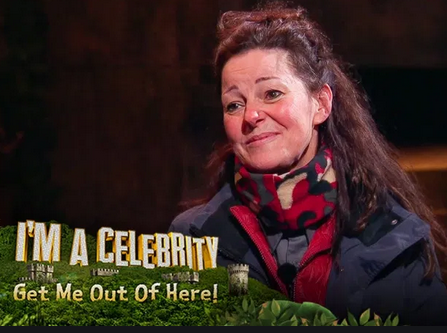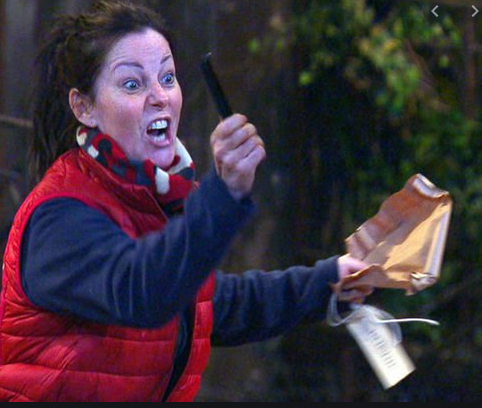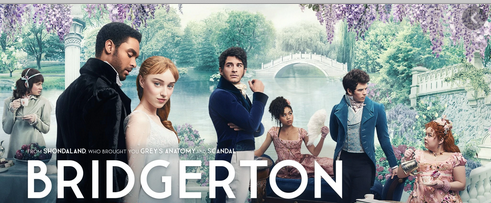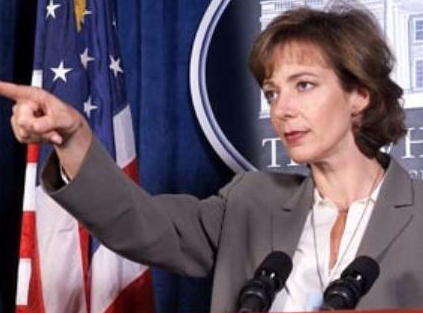A couple of days ago Guardian TV critic Rebecca Nicolson raised a worrying prospect in a column headlined: In this seemingly endless lockdown, will we finally run out of TV?
“…as the stay-at-home orders keep rolling in, a sort of viewing fatigue has descended. Like many, I have done the big box sets and the best shows of 2020. I have watched at least one and a half documentaries. On terrestrial TV – it’s like Netflix, except you have to watch what’s put in front of you – there are far more repeats than usual, and a growing suspicion that certain shows that might have languished in a daytime slot have been bumped to the evening without earning it. There is still no release date for Succession’s third season. I whispered it quietly, shocked at the thought that I might have to spend an evening talking, or doing another puzzle: are we going to run out of television?”
As someone whose life has been devoted to theatre for the last forty or so years, I’ve missed most of the big TV moments: I’ve never watched Strictly, Bakeoff or The X-Factor (even though one of my best friends is in charge of its production, though I did attend the live Britain’s Got Talent finale that he also produced when Susan Boyle was a finalist, mainly because of the theatrical connection she made by singing a song from Les Miserables).


This year I watched a bit of I’m A Celebrity, Get Me Out of Here live, but only because theatre’s very own Ruthie Henshall (pictured above) was one of the celebrities.
Yes, over the years I’ve stumbled into — and loved — various shows — like Curb Your Enthusiasm, The Good Wife (and its sequel The Good Fight, with our very own Cush Jumbo as one of the lawyers) and Schitt’s Creek, but I’ve never been able to commit to longer-running institutions like EastEnders (though back in the mid-80s I used to like Brookside).
But during lockdown I’ve been catching up a bit. I even managed to watch a couple of shows more or less contemporaneously with their release, so for once I’ve been able to participate in “water cooler” conversations around them (if only there were offices and water coolers to gather around, though I guess Twitter is the new communal water cooler).

Last Friday I watched the first episode of It’s A Sin as it was being broadcast live on Channel 4 (which I wrote about here), and then devoured the rest of the series in the next two nights; there’s no need anymore for the delayed gratification of waiting for each weekly instalment). I also watched the entirety of Bridgerton (pictured above) within a week of its release. And although I was late to the first series of Staged, I was a committed fan by the time the second one arrived.
Of course, I’m invariably playing catch-up: there are now three series of Call My Agent, and I’ve only just this week completed the first of this hilarious, chic (and beautifully acted) portrait of a Parisian agency who represent directors and actors who work in the French film industry. (I want to sign up to become an agent today, please!)
Nicolson also said that during the first lockdown, she’d set herself some TV goals. “I would rewatch The Sopranos, because I had not seen it for at least 10 years, and I wanted to know if it still stood up as the best show in TV history. It does, and plenty of people had the same idea: it was one of the breakout hits of 2020.”

That one is still on my list for this lockdown; so is re-watching The West Wing, starring one of my very favourite actors in the entire world, Allison Janney (pictured above), who played press secretary C.J with the kind of breezy professionalism that couldn’t be more removed from the phoney crap we had to put up with from the reality-denying Sean Spicer, the homely Sarah Huckabee Sanders or the chronically dishonest Kayleigh McEnany over the last four years.
As Nicolson commented,
“Let’s be realistic, there is too much TV for anyone to watch, even in more ordinary times. If every single show simply ceased production, there would still be decades’ worth of shows to work through. One set of calculations estimates that it would take four years, without sleeping, to ‘complete’ Netflix’s library of TV and films. Even under this government, that is a pessimistic commitment.”
By which time, of course, they’ll have no doubt created another year’s viewing.
It’s just 8 years since Netflix’s first original series debuted; it had just 30m subscribers then, mostly in the US, after moving from a DVD-by-post service to a streaming one six years earlier. That number has now topped 200 million, and according to a news story in the Sunday Times on the weekend, with subscription fees going up from February, the top-level service– aimed at families who want to stream on multiple devices at once — will now cost £167.88 — more than £10 more than the annual BBC license fee (which costs £157.50).
But whereas the traditional licence fee gives you access not just to the BBC’s channels but also opens the door to other commercial terrestrial and digital channels, a subscription to Netflix only unlocks Netflix; if you want to watch another bit of “event television”, like the wonderful Succession that chronicles the in-fighting of a Murdoch-esque media family, you’ll have to sign up to NOW TV or Amazon. (I’m eagerly awaiting the third series). Then there’s Disney Plus, for the live capture of Broadway’s Hamilton with its original Broadway cast.
Where or when does it stop? As a ‘completist’ sort of personality, it never does. And I do not have enough hours left in my life to see it all.
At least with the theatre, even as I likewise had to admit defeat eventually that in London that it would be possible to see everything I wanted to, there’s a finite cap, and you inevitably miss things simply because they close before you can get to them. That sometimes amplifies the frustration — and is what drove me to at times see up to 12 shows a week (all seven evenings plus five matinees).
Lockdown, when everything came crashing to a halt simultaneously, has at least removed that temporary pressure. And I hope that, as and when the theatre returns, I will not go back to my habit of conspicuous consumption, but set myself a ceiling of four or five shows a week, so I can fit some other things into my life, too — like my newfound pleasure in television.
